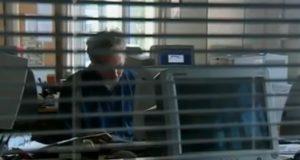- Upset coffee - 25th February 2026
- Not acting the part - 24th February 2026
- Death wish - 23rd February 2026

During 23 years with the BBC, and 40 years as a journalist (when he was trained to use clear and simple language, avoiding jargon), a knowledge of lessons from history has always been critical to our Editor, Welshman Phil Parry, and this is underlined by accusations now that they have failed to be learnt because the cancellation of a major section of HS2 highlights how engineering feats are now seen as brilliant, yet were viewed as too expensive at the time.
As a bank holiday read he here explains why history has always played a major part in his life.
 Earlier he described how he was assisted in breaking into the South Wales Echo (SWE) office car when he was a cub reporter, recalled his early career as a journalist, the importance of experience in the job, and making clear that the ‘calls’ to emergency services as well as court cases are central to any media operation.
Earlier he described how he was assisted in breaking into the South Wales Echo (SWE) office car when he was a cub reporter, recalled his early career as a journalist, the importance of experience in the job, and making clear that the ‘calls’ to emergency services as well as court cases are central to any media operation.
He has also explored how poorly paid most journalism is when trainee reporters had to live in squalid flats, the vital role of expenses, and about one of his most important stories on the now-scrapped 53 year-old BBC Wales TV Current Affairs series, Week In Week Out (WIWO), which won an award even after it was axed, long after his career really took off.
Phil has explained too how crucial it is actually to speak to people, the virtue of speed as well as accuracy, how certain material was removed from TV Current Affairs programmes when secret cameras had to be used, and some of those he has interviewed.
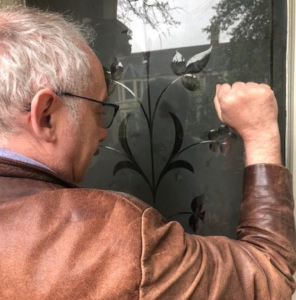
He has disclosed as well why investigative journalism is needed now more than ever although others have different opinions, how the coronavirus (Covid-19) lockdown played havoc with media schedules, and the importance of the hugely lower average age of some political leaders compared with when he started reporting.
There are countless examples.
The lessons from history are innumerable, and can teach us all something now – particularly our politicians.

Let’s look at these in the context of the cancellation, today, of the high speed railway line (HS2) between Birmingham and Manchester, which came about mainly because it would have cost too much.
In announcing it was being axed, Rishi Sunak said (rightly) that the price had doubled and the “economic case” for the line had “massively weakened with the changes to business travel post-COVID”, and scrapping phase two would free up £36 billion.
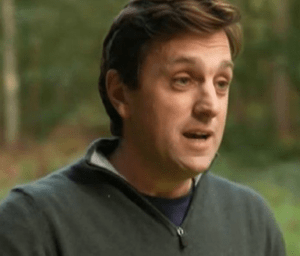
But praise for the decision on environmental grounds has come too, because it would have cut through swathes of beautiful countryside, including Swynnerton Estates in Staffordshire.
“We’re delighted we don’t have to deal with HS2” , said estate manager Ben Fitzherbert.
With the exception of local authorities, Swynnerton Estates, near Stone, was the largest chunk of land to be affected by the project’s planned route between Birmingham and Crewe, but now it will be preserved.

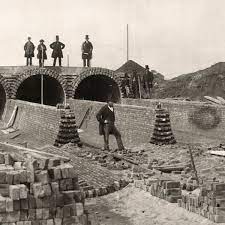
The high cost of HS2 (and protection of the countryside), is certainly true.
On the other hand, if the Victorian engineers, and UK Government at the time had thought like that, where would we be? They’re seen as great visionaries now, but at the time they faced HUGE hostility over the cost of their projects.
Perhaps we wouldn’t have the fine sewer system in London by Joseph Bazalgette (dubbed “one of the best systems in the world”), or the magnificent Great Western Railway (GWR).
Or then there’s the Sydney Opera House which is now seen as one of most iconic buildings on the planet, but at the time was deeply opposed because of the cost, which ballooned.
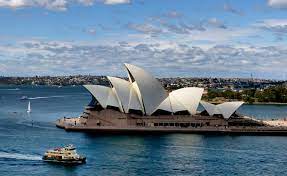
The project’s initial budget was $7 million, but the final bill was over $100 million.
These kind of experiences from past events (that what seems very sensible NOW, could be seen as disastrous in years to come) have an enormous heritage. For example ‘picking winners’ in industrial policy is now viewed as a complete mistake, so it is largely not done now in the UK. Terrible mistakes were also made in trying to stand up to Japan in the 1980s, and this, too, might hold lessons today, not just with HS2, but also with the West trying to take on the industrial powerhouse of China.
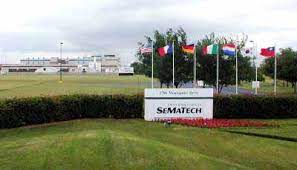
Let’s look in a bit more detail at some of those cases.
In 1987, industry bigwigs and civil servants noted that American semiconductor manufacturing was struggling. Japan was stealing market share and jobs, threatening national security and economic growth. In partnership with industry, the US Government pledged $100 million ($250 million in today’s money) in annual subsidies to form an R and D consortium called Sematech to boost productivity.

But the plan, in large part, did not work. Research by Douglas Irwin of Dartmouth College and Peter Klenow of Stanford University, published in 1994, found that they could not “find any evidence that Sematech changed investment plans in the semiconductor industry”.
Nor was this interventionist economic policy any better in Europe.
“Attempts to create competitive advantage through government direction and support were generally unsuccessful“, argued Sir Geoffrey Owen of the London School of Economics.
It is no coincidence that during the 1950s, when the UK embraced that approach most enthusiastically, it fell a long way behind.

So learning from history (as well as teaching it properly) is enormously important, and the HS2 decision is probably just the latest example of not doing so.
Unfortunately history has itself become a battle ground now, with it appearing to resemble the English civil war (or ‘revolution’) of the 1640s.
On one side some say the history of Wales being colonised by the English should be taught in all schools, while in the opposing army others proclaim this is a gross distortion, and that there have long been close economic and social ties with England.


Before the abuse begins on social media let me say from the outset that I am in NEITHER camp!
In a 2013 speech the then UK Education Secretary Michael Gove declared that history can be an “ideological battleground” for “contending armies”, he declared. “There may, for all I know, be rival Whig and Marxist schools fighting a war of interpretation in chemistry or food technology, but their partisans don’t tend to command much column space in the broadsheets”.
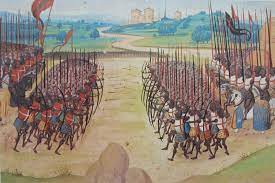
More recently there has been enormous pressure to teach more of the UK’s involvement in the slave trade, and how it has fed into almost all sectors of the industrial revolution. Campaigners want the curriculum “decolonised” and the history of slavery, as well as that of black Britons made compulsory in schools in England. Partly in reaction to such demands, Policy Exchange, a think-tank that was close to the UK Government, launched a “History Matters” project to “address the rewriting of history as it happens”. But others are equally keen on disseminating another kind of history.
In Wales, though, it is different, and the country has become the first nation in the UK to mandate Black history lessons across its National Curriculum.

Mr Gove’s first attempt at rewriting the history curriculum to give “a connected sense of the narrative of our islands” was widely criticised as narrow and triumphalist. Referring to a comic take on British history, the historian Simon Schama, damned the proposals as “‘1066 and All That’, but without the jokes”.
At my school in Monmouth, the teaching of history was incredibly traditional with no reference whatsoever to Wales (and I declare an interest here because my father was head of history). My dad, Robert, read history at Cambridge University (CU), and my uncle (Robert’s brother) was a history professor at Harvard University (HU). At one point he was also Principal (or Vice Chancellor) of what became Swansea University (SU) so I have a special interest in events there.
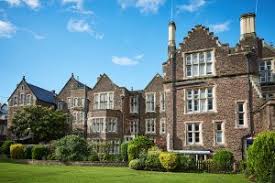
The history I studied at school was all about the UK Government ministries of the late 19th century, and how Britain vied with France in building up its empire.
Monmouth School is a second division independent or ‘private’ (confusingly also called ‘public’) school and certainly not in the same league as Eton or Marlborough. The motto is “Serve And Obey”, and as pupils we came to know that motto well, because if we stepped out of line we were regularly beaten. Yet the school is in Wales and should, I suggest, have had information about WELSH HISTORY!

At Monmouth School I regularly competed with a classmate for that year’s history prize, and my interest in the subject continued thereafter. I studied Politics and Modern History (PMH) at Manchester University (MU), and the background to an event has always fascinated me.
History is up there for an investigative journalist, along with knowledge of the libel laws and past experience. History has always played a prominent role for me, because in order to construct a story it is important not simply to know that an event occurred, but the history of WHY it occurred.
It seems a shame that Mr Sunak didn’t learn those lessons from what confronted engineers before they built the railways, sewage systems, and the Sydney opera house!

Phil’s memories of his extraordinary 40-year award-winning career in journalism when history was always central, as he was gripped by the rare disabling condition Hereditary Spastic Paraplegia (HSP), have been released in a major book ‘A Good Story’ (which includes lessons from the past). Order the book now.
Regrettably publication of another book, however, was refused, because it was to have included names.
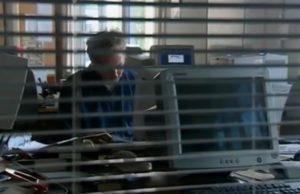
Tomorrow – Phil looks at how political deals have always made good copy for him, and now this has been highlighted by news that an imperfect one has been secured to keep going the vast American service sector for a few weeks – but leaves out help for Ukraine.









